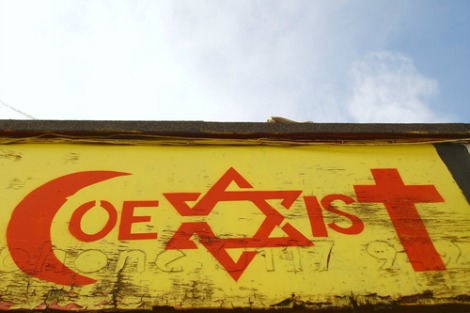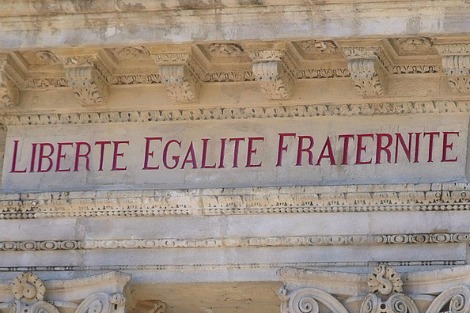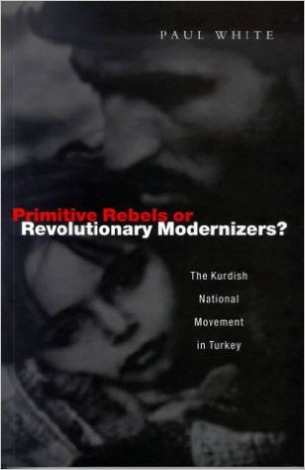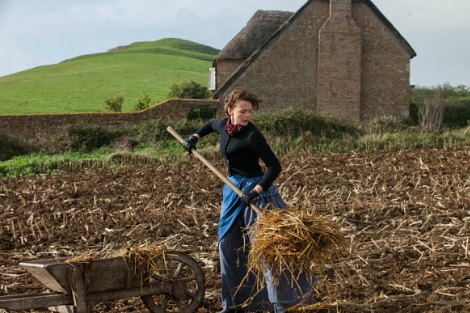Keywords: Tension
There are more than 200 results, only the first 200 are displayed here.
-

AUSTRALIA
The chants were thunderous and sustained, as the suited and elegantly coiffed guests began to arrive for the Liberal Party fundraiser at Docklands. Initially there did not seem to be a significant police presence, as if the need for security was not considered high. As the chanting rose to a crescendo, chaos ensued. The mounted police arrived; but there seemed no plan of crowd control. It was a small protest but it was locked into a contained area with only one entrance. Then the wounded started to emerge.
READ MORE 
-

RELIGION
- Frank Brennan
- 07 March 2016
'On his last two visits to Latin America, Pope Francis has focused on past and present relationships between indigenous peoples and their colonisers. This Jubilee Year of Mercy perhaps it could be a blessed moment for Aboriginal Australians and descendants of their colonisers to walk together through the Door of Mercy at the St Francis Xavier Cathedral, calling to mind the sins and endeavours of the past, the achievements and commitments of the present, and the hopes and aspirations of the future.' Fr Frank Brennan SJ, Lenten Talk, Norwood Parish, 3 March 2016
READ MORE
-

AUSTRALIA
- Andrew Hamilton
- 03 February 2016
10 Comments
Of the United Nations Days and Weeks, World Interfaith Harmony Week is one of the most recent and perhaps the most modestly celebrated. It may also be the most needed. But the conversation cannot be confined to the churches and to those with religious faith. Its claim needs to extend beyond religious faiths to secular views of the world. The obstacle to such conversation is the religious settlement in Australia and Western nations, which can be described as negative tolerance.
READ MORE 
-

RELIGION
- Frank Brennan
- 09 December 2015
2 Comments
'I joined the Jesuits in 1975 just as the previous 32nd General Congregation (GC32) was concluding. Pedro Arrupe was at the height of his powers. That Congregation asked the question: 'What is it to be a companion of Jesus today?' and answered unequivocally, 'It is to engage, under the standard of the Cross, in the crucial struggle of our time: the struggle for faith and that struggle for justice which it includes.' I have always regarded myself as a GC32 Jesuit. Many of those who gathered for GC33 thought that the GC32 mission was a little too one-dimensional. I suspect Bergoglio was one of those.' Frank Brennan on the eve of the Catholic Church's Jubilee Year of Mercy.
READ MORE
-

AUSTRALIA
- Andrew Hamilton
- 03 December 2015
15 Comments
A cyclist since my youth, I was intensely annoyed when campaigners first tried to enforce cycle helmets. I loved the wind rushing through my hair, and believed my safety could be left to my responsibility. Others might have wondered if I overestimated my sense of responsibility. It was hardly compatible with the practice of never applying the brakes when going down hills on country roads, or with the view that traffic rules applied only to cars. Later, I came to see that individual freedom must be considered in its context of human relationships.
READ MORE 
-

RELIGION
- Frank Brennan
- 27 November 2015
2 Comments
'The crisis of child sexual abuse in our societies has required that our institutional procedures be more transparent and that we learn from the ways of the world in exercising power openly and justly. This means we have to restructure some of our church arrangements so that power is exercised accountably and transparently. All of us who have positions of influence and power in institutional churches need to be attentive to the voices of those who have suffered within our institutions.' 'Discerning the place for the prophetic voice and pragmatic cooperation of the churches in the great moral questions of the age', address to the Association of Practical Theology in Oceania conference, 26 November 2015.
READ MORE
-

INTERNATIONAL
- Andrew Hamilton
- 19 November 2015
19 Comments
The mass murder of unarmed civilians in Paris last weekend was appalling. Whether considered as an act of war or of terror, it was indefensible. The themes of war against terrorism and victory have dominated commentary on the killings. In light of the fact that the war against terror was the seedbed in which IS grew, they demand serious reflection. We should ask precisely what our enemy is attacking, what therefore must be defended, and what will be the signs of victory or defeat.
READ MORE 
-

AUSTRALIA
- Frank Brennan
- 23 October 2015
4 Comments
Francis knows there are all sorts of issues inside and outside the Church where for too long people with power have tried to keep the lid on, in the hope that the problems and complexities will go away, often by parodying those who see the problems or complexities as small 'l' liberals or cafeteria Catholics. He delights in being joyful and troubled while contemplating big problems, calling people of good will to the table of deliberation reminding them of the kernel of the Christian gospels. He has the faith and hope needed to lift the lid without fear and without knowing the answers prior to the dialogue occurring.
READ MORE
-

AUSTRALIA
- Brian Matthews
- 16 October 2015
3 Comments
In the recent AFL Grand Final, the performance of Aboriginal footballer Cyril Rioli seemed to be not much short of magic. Well, perhaps the spirit world did make a contribution. In 1844, a great throng of clans was camped on the site of what became the MCG. Perhaps, 170 years later, Aboriginal footballers, running down the race for the first time and steeling themselves for the noise, the space, the tension, find instead a great sense of intimacy as their feet hit the grass of the oval.
READ MORE 
-

INTERNATIONAL
- Paul White
- 16 October 2015
1 Comment
Last Saturday's bomb blasts in the Turkish capital Ankara, which left 128 dead and some 246 wounded, occurred in the wake of the ruling AK Party's recent electoral defeat and its decision to call a fresh election. Since losing the election, President Erdoğan has effectively dumped a peace deal with the Kurdish nationalist PKK and restarted Ankara's war against the Kurdish people. Dark dies lie ahead for ordinary Turks and Kurds in Turkey until the grip of ultranationalism is broken.
READ MORE 
-

- Andrew Hamilton
- 30 July 2015
3 Comments
Ignatius of Loyola, whose feast day is on 31 July, is remembered for founding the Jesuits, for his Spiritual Exercises and for the effect Jesuits had on European history and in overseas missions. He was a man who made a difference. But during his life that reputation was not a done deal. One often overlooked event, more accurately an event that failed to happen, shaped decisively how he has come to be remembered.
READ MORE
-

ARTS AND CULTURE
- Tim Kroenert
- 16 July 2015
4 Comments
English literary journalist Lucasta Miller noted that Hardy's title, Far From the Madding Crowd, with 'madding' taken to mean 'frenzied', is an ironic nod to idyllic perceptions of rural life; Hardy 'disrupts the idyll'. At the heart of the story is Bathsheba, a proud and independent young shepherd who becomes the new proprietor of her late uncle's farm. Her story unfolds against stunning rural landscapes that provide a sublime stage for violence both physical and emotional.
READ MORE 